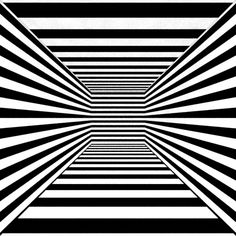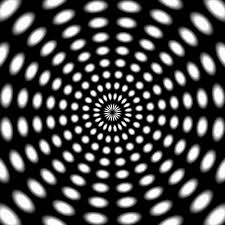|
LITR 4368 Literature of the Future |
Sample answers
for Essay 1:
|
 |
Zach
Thomas
5/4/16
Alien vs. Earth-Dwellers
It seems strange to analyze similarities between alien contact and an
ecotopian society, but there are actual similarities that can better allow us to
understand future literature as genuine works of literary art. Aliens can be
viewed as metaphors, while ecotopian literature can be taken more literally.
They both serve a higher purpose than surface level entertainment for the
general public. I will try to compare/contrast the usage of aliens and ecotopias
to spur on additional thought concerning the human race and the involvement of
“others,” with other-world natural technology.
Aliens are meant to entertain—at least that it is how Hollywood has
connected them to us, the mass exodus of movie-lovers. A concept of our study in
this course has concerned the
“self
and other,” meaning there is the human race, then there is something completely
set apart from original creation on Earth that is near us now. The invention of
aliens has always intrigued me as it seems like aliens are a metaphor for the
forgotten races of our world. Looking back in times of slavery, blacks were
viewed as property and not people for much of the South. This same notion also
seems to connect with Romero’s interpretation of zombies when he created the
movie, “Night of the Living Dead,” as a movement towards identifying a new race
that has an agenda of their own. Aliens are grouped together as a significant
ingredient for science fiction because they are not just involved in scaring us,
but they often allow us to question why they exist and wonder about their
purpose in meeting humans here.
The introduction of aliens is primarily viewed through a high-tech lens.
They seem to be an extremely
“evolution-ized” version of ourselves and/or having more highly advanced
technology. This is made evident in the writing of “They’re Made Out of Meat.”
Here we read this back and forth dialogue between two aliens about the human
race. We are just “meat” to them. We may create cool gadgets and exist
independently in our little world, but they will always be one step ahead of us
in technology and communication. I like how the author chose not to describe the
aliens in a very typical, sci-fi sort of way because it takes away from the fact
that we might not be able to comprehend what they appear to look like. Aliens
should be perceived in a more sublime manner as they exist outside of our
scientific knowledge completely. The high-tech nature of aliens keeps us from
really putting a finger on their existence, so we revert to using metaphors to
compare them to creatures we have on Earth.
Switching gears, I would like to speak of ecotopian societies and what
they are defined as in this course. Ecotopias function as a utopia centered on
the preservation of nature by using more regenerative forms of technology to aid
nature. It almost feels like a flashback to the first humans and neanderthals
because nature is not discarded by industry, but aided by technology.
“House of Bones” was set in an ecotopian society that looked like the
early-dwellings of cavemen that we have read about in textbooks. The characters
live in what seem like very basic forms of housing units and hunt with very
simple weapons (I mean they hunt for food, most of us don’t even do that.) This
society is seen as a perfect form of culture because these humans jump back to a
simpler form of living that is not a drain on energy resources, so that their
technology can work for them and not the other way around.
Now with ecotopian societies being labeled as minimalistic, there comes
the connection with low-tech future narratives.
“Chocco” and “House of Bones” both focus their attention on a familial style of
living that is concerned with the well-being of the entire community. These
communities are focused on the bare-bone concept of socialism as their method of
survival. Ecotopias use advanced technology, so it can also be interpreted as
high-tech, but I wish to focus on the low-tech side. This natural society is
about connection and human touch. It was made relevant with the graphic sexual
details in “House of Bones” as a way to make the existence of this society a
relational one. Organic food is a mainstay for ecotopias as they provide the
simplest form of nourishment that provides the best health benefits to the
individual, one in which is in direct contrast to a heavily-processed and
genetically-modified diet. These characteristics of ecotopian societies provide
the groundwork for similarities with low-tech futures.
As I brought up before, aliens can be viewed as a metaphor for a
forgotten/lost race that has direct ties to ecotopian societies. In the
“House of Bones,” the protagonist is sent on a journey to find a strange
creature that keeps popping its head into their campsite. The main character is
unsure of what to do with the creature, whether he is to kill it or befriend it.
He gets so worked up overthinking the future dialogue with this creature because
when he meets the “it,” he finds him to be a far more primitive version of
himself. He finds very deep human qualities within this Scavenger Man and brings
him back to camp to live with their community. It ends up being a ploy set up
all along for the protagonist to welcome the seemingly “unwelcome.” This
metaphor ways heavy with our fascination with aliens, so we have used movies
like E.T. and Wall-E, to bring to the light the social side to humanity: a side
that is often overlooked when it manifests itself within a heavily-weighted
capitalistic government.
There are also differences that you are able to point out while analyzing
aliens and ecotopian societies. For one, aliens have been a closer cause for
concern in our society than our own environment. As discussed in our class, it
is often too depressing to think about the decline of our environment with
drastic climate change and diminishing resources. However, it is a factual piece
of knowledge that we consciously choose to neglect. Another difference is the
separation of aliens and humans that is unlike an ecotopian society. In
“The
Poplar Street Study,” there was a dominating force of aliens that came in and
essentially made the humans on Poplar Street their slaves. There is no real
heart-felt connection that these aliens brought to the humans and they were sent
on menial tasks of finding food to survive. To be apart, as with humans and
aliens, is to adversely show the relation between being “a part of” a community
that needs the involvement of all its members in order to survive.
There are many parallels that ecotopias have with aliens, and yet there
are dissensions that make the interpreter aware of his/her own moral compass.
Aliens represent many different traits of humans because we can only define
things by relating them to other already-known objects. Ecotopian societies
address low-tech familiarities with the family model, but also show elements of
high-tech as their technology works for them as they try to make their planet
last longer. They do not wish to add to the crumbling world, but have focused
their attention on how to save what was freely given to them. Both forms of
future-literature require much more interpretation; as with all
future-literature, it can change, and it could be something entirely different a
century from now.




